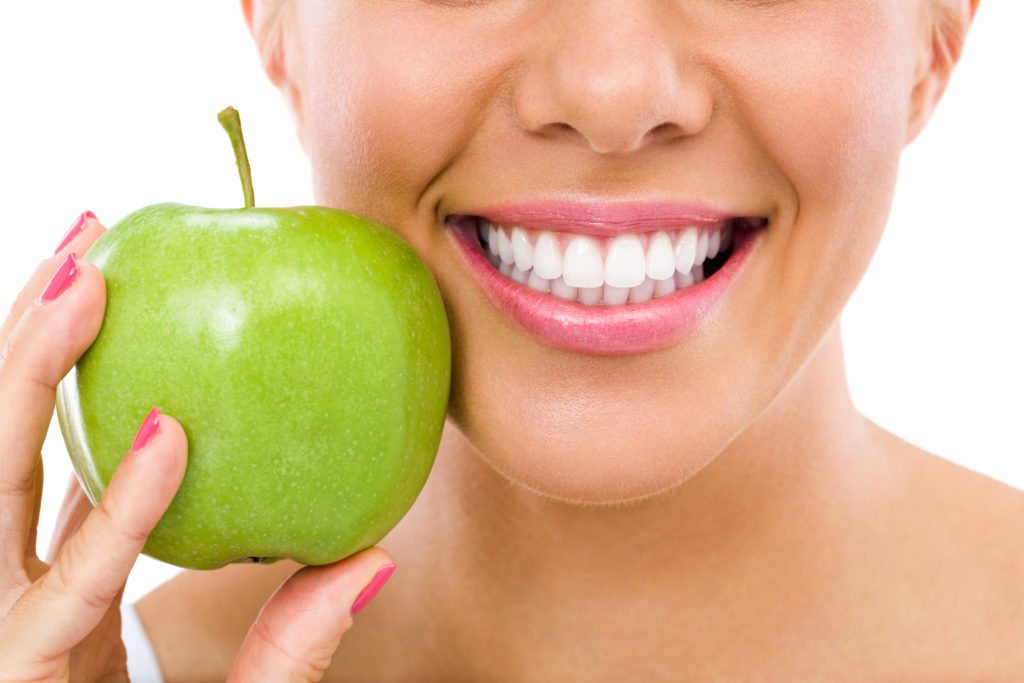
27 Mar Nutrition & Dental Health
To celebrate March, which is National Nutrition Month, we have teamed up with a local nutritionist to teach you how you can support your dental health and minimize the incidence of cavities through nutrition! Teeth, just like any other bones in the body, have the ability to regenerate. Bones are made up of minerals derived from the foods that we eat, and specific nutrients and vitamins play key roles in where these minerals are place and how they perform in the body.
Ready to learn all about which foods will help to support healthy teeth? Keep reading!
Foods high in minerals
Many minerals, not only calcium, make up our bones. A proper balance of calcium, phosphorus and magnesium are essential to healthy bones and teeth. Phosphorus is found in meats, fish and dairy. Great sources of magnesium include dark leafy greens, pumpkin seeds and raw cacao.
Foods rich in Vitamin D
Imagine that Vitamin D is the taxi driver that delivers calcium to the bone. Without Vitamin D, calcium will just float around in the bloodstream getting deposited in spots we don’t need it. This would result in weakened bones and teeth, and could cause calcium buildups in the veins that would ultimately affect the circulatory system. Great sources of Vitamin D include salmon and other fatty fish, eggs and dairy products.
Foods rich in Vitamin K2
If we think of Vitamin D as the taxi driver for calcium then Vitamin K2 is the security guard placing calcium safely in the bone and ensuring demineralization (a process where the body pulls minerals from the bone in an effort to balance pH levels) does not take place. The best sources of Vitamin K2 are fermented foods such as kimchi and sauerkraut.
It is very important to know which foods will support our dental health, but it is also necessary to know which foods we should avoid!
Sugary foods
We’ve all heard that sugar is bad for our teeth. But do you know why? Sugar is what we consider an antinutrient. When we consume foods high in artificial sugars and sweeteners our bodies are actually robbed of essential vitamins and nutrients. Sugar is naturally acidic and causes the body’s pH balance to shift. In an effort to rebalance itself, the body will pull neutralizing minerals from the bones resulting in weakened and cavity prone teeth.
Foods high in Phytic Acid
The body naturally converts phytic acid into phytates, which are un-absorbable and take calcium from the body. Those who consume high amounts of phytic acid will lose calcium and absorb other minerals at lower rates. Phytic acid is found in grains, nuts, seeds and legumes. Try soaking or sprouting your nuts, grains, seeds and legumes in order to naturally break down phytic acid if you don’t want to remove them altogether.
We hope that this post has provided you with some beneficial information about foods to eat (and avoid) that will benefit both your dental and overall health! Moving forwards, you now have the necessary information to make more informed decisions to ensure a happier and healthier life! For more information regarding your teeth, dental care, or dental hygiene, don’t hesitate to reach out to the team at McAllister Dentistry today.


Sorry, the comment form is closed at this time.